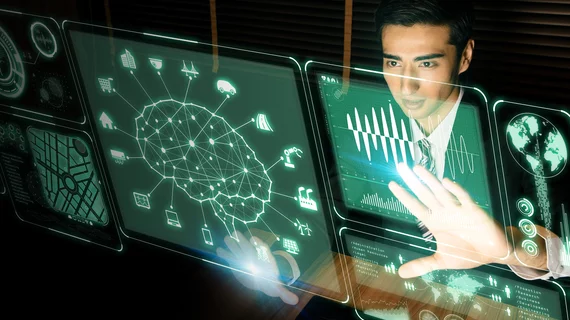AI model IDs high-risk cardiovascular patients based on imaging data
Researchers have developed a new AI algorithm that uses imaging results to identify patients at a heightened risk of a major adverse cardiovascular event (MACE), publishing their findings in Nature Communications.
The team behind the study included specialists from Brigham and Women’s Hospital, Harvard Medical School, Massachusetts General Hospital (MGH), Boston University and Duke University. The group’s deep learning system uses CT scans to deliver automatic measurements of a patient’s coronary artery calcium. This information can then be used to help physicians make key decisions about the patient’s health, including whether or not it may be time to consider statin therapy as a tool for preventing heart attacks.
“In theory, the deep learning system does a lot of what a human would do to quantify calcium,” lead author Roman Zeleznik, MSc, a data scientist at Brigham and Women’s Hospital, said in a statement. “Our paper shows that it may be possible to do this in an automated fashion.”
Zeleznik et al. trained their AI model using data from the Framingham Heart Study, validating its accuracy with CT results of more than 20,000 patients. The algorithm was able to accurately determine a patient’s calcium score and, in turn, alert providers when that individual faces a an above-average MACE risk.
“This is an opportunity for us to get additional value from these chest CTs using AI,” said co-author Michael Lu, MD, director of artificial intelligence at MGH’s Cardiovascular Imaging Research Center. “The coronary artery calcium score can help patients and physicians make informed, personalized decisions about whether to take a statin. From a clinical perspective, our long-term goal is to implement this deep learning system in electronic health records, to automatically identify the patients at high risk.”
The full analysis from Nature Communications is available here.

